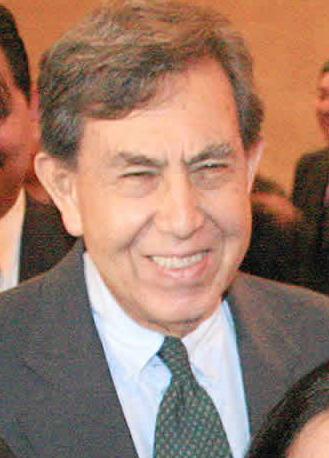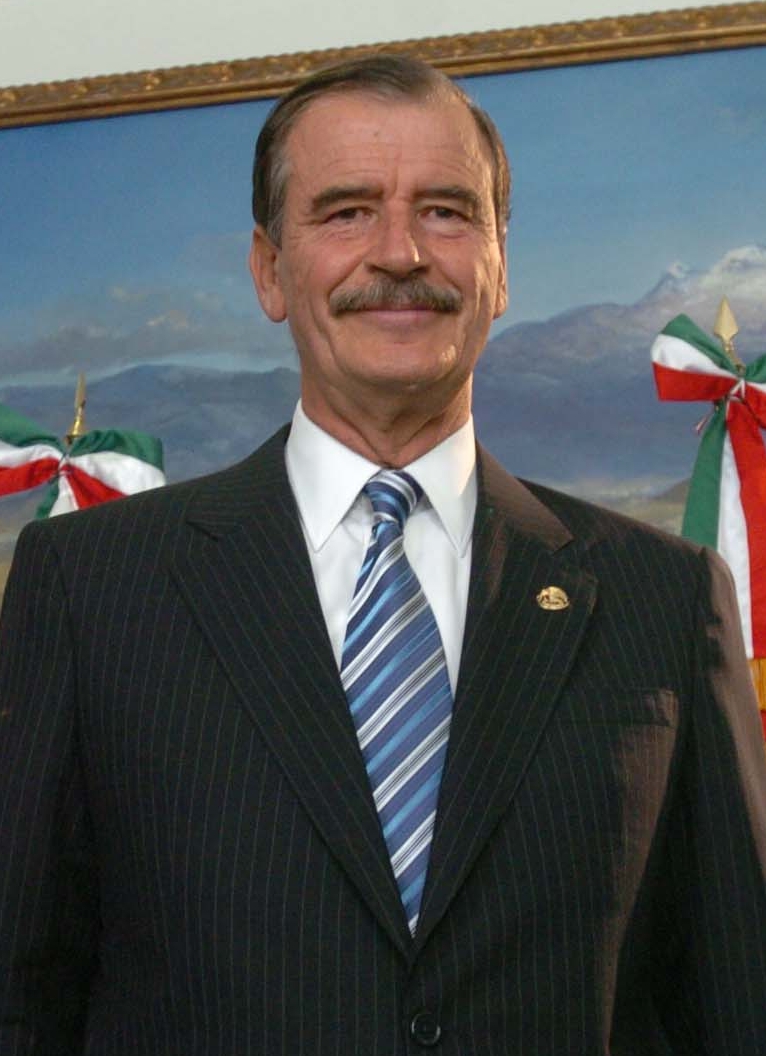|
1982 Mexican General Election
General elections were held in Mexico on 4 July 1982.Dieter Nohlen (2005) ''Elections in the Americas: A data handbook, Volume I'', p. 453 The presidential elections were won by Miguel de la Madrid, who received 74% of the vote. In the Chamber of Deputies election, the Institutional Revolutionary Party (PRI) won 299 of the 372 seats,Nohlen, p468 as well as winning 63 of the 64 seats in the Senate election. Voter turnout was 75% in the presidential election and 73% and 66% for the two parts of the Chamber elections. The deputies elected served during the 52nd session of Congress (1982–1985), while the senators additionally served during the 53rd session (1985–1988). Rosario Ibarra, who was nominated as a presidential candidate by the Workers' Revolutionary Party (PRT), was the first woman ever to run for president in a Mexican election. These were the last of the symbolic/non-competitive presidential elections in which the PRI (in power since 1929) and its presidential ... [...More Info...] [...Related Items...] OR: [Wikipedia] [Google] [Baidu] [Amazon] |
Miguel De La Madrid
Miguel de la Madrid Hurtado (; 12 December 1934 – 1 April 2012) was a Mexican politician affiliated with the Institutional Revolutionary Party (PRI) who served as the 59th president of Mexico from 1982 to 1988. Inheriting a severe economic and financial crisis from his predecessor José López Portillo as a result of the 1980s oil glut, international drop in oil prices and a crippling external debt on which Mexico had defaulted months before he took office, De la Madrid introduced sweeping neoliberalism, neoliberal policies to overcome the crisis, beginning an era of market-oriented presidents in Mexico, along with austerity measures involving deep cuts in public spending. In spite of these reforms, De la Madrid's administration continued to be plagued by Recession, negative economic growth and inflation for the rest of his term, while the social effects of the austerity measures were particularly harsh on the lower and middle classes, with real wages falling to half of what th ... [...More Info...] [...Related Items...] OR: [Wikipedia] [Google] [Baidu] [Amazon] |
Workers' Revolutionary Party (Mexico)
The Workers' Revolutionary Party (, PRT) is a Trotskyist political party in Mexico. It was originally founded in 1976 by the merger of two Trotskyist groups: the International Communist League, associated with the United Secretariat of the Fourth International and the Mexican Morenists. In 1977, the Marxist Workers' League, associated with the Organising Committee for the Reconstruction of the Fourth International, joined the party. In the following years, other small groups of Trotskyists also joined the PRT, but the group associated with Moreno left in 1979 to form the Socialist Workers' Party (Partido Obrero Socialista) (POS). From their base in the 1968 student movement, the PRT grew quickly, soon gaining bases of support among some telephone, electrical, nuclear, and hospital workers. By the 1980s, it was the largest far-left party to challenge the ruling Institutional Revolutionary Party (PRI). In 1981, the federal government recognized the PRT as an official nationwi ... [...More Info...] [...Related Items...] OR: [Wikipedia] [Google] [Baidu] [Amazon] |
National Autonomous University Of Mexico
The National Autonomous University of Mexico (, UNAM) is a public university, public research university in Mexico. It has several campuses in Mexico City, and many others in various locations across Mexico, as well as a presence in nine countries. It also has 34 research institutes, 26 museums, and 18 historic sites. A portion of (University City), UNAM's main campus in Mexico City, is a UNESCO World Heritage site that was designed and decorated by some of Mexico's best-known architects and painters. The campus hosted the main events of the 1968 Summer Olympics, and was the birthplace of the Mexican Movement of 1968, student movement of 1968. All Mexican Nobel laureates have been alumni of UNAM. In 2009, the university was awarded the Princess of Asturias Awards, Prince of Asturias Award for Communication and Humanities. More than 25% of the total scientific papers published by Mexican academics come from researchers at UNAM. UNAM was founded in its modern form, on 22 Septemb ... [...More Info...] [...Related Items...] OR: [Wikipedia] [Google] [Baidu] [Amazon] |
PEMEX
Pemex (a portmanteau of Petróleos Mexicanos, which translates to ''Mexican Petroleum'' in English; ) is the Mexico, Mexican State ownership, state-owned Petroleum industry, petroleum corporation managed and operated by the government of Mexico, Mexican government. It was formed in 1938 by nationalization and expropriation of all Mexican oil expropriation, private oil companies in Mexico at the time of its formation. Pemex had total assets worth $101.8 billion in December 2019 and as of 2009 was Latin America's second largest enterprise by annual revenue, surpassed only by Petrobras (the Brazilian national oil company). The company is the seventh most polluting in the world according to ''The Guardian''. History Asphalt concrete, Asphalt and Pitch (resin), pitch had been worked in Mexico since the time of the Aztecs. Small quantities of petroleum, oil were first refined into kerosene around 1876 near Tampico. By the early 20th century, commercial quantities of oil were being ... [...More Info...] [...Related Items...] OR: [Wikipedia] [Google] [Baidu] [Amazon] |
Jorge Díaz Serrano
Jorge Díaz Serrano (6 February 1921 – 25 April 2011) was a Mexican politician and engineer, member of the Institutional Revolutionary Party, ambassador to the Soviet Union, senator, and director general of Pemex Pemex (a portmanteau of Petróleos Mexicanos, which translates to ''Mexican Petroleum'' in English; ) is the Mexico, Mexican State ownership, state-owned Petroleum industry, petroleum corporation managed and operated by the government of Mexico, ... from 1976 to 1981. References Instituto Politécnico Nacional alumni Ambassadors of Mexico to the Soviet Union 1921 births 2011 deaths Politicians from Sonora People from Nogales, Sonora 20th-century Mexican politicians Institutional Revolutionary Party politicians National Autonomous University of Mexico alumni Members of the Senate of the Republic (Mexico) {{Mexico-politician-stub ... [...More Info...] [...Related Items...] OR: [Wikipedia] [Google] [Baidu] [Amazon] |
States Of Mexico
A Mexican State (), officially the Free and Sovereign State (), is a constituent Federated state, federative Polity, entity of Mexico according to the Constitution of Mexico. Currently there are 31 states, each with its own constitution, State governments of Mexico, government, Lists of Mexican state governors, state governor, and List of Mexican state congresses, state congress. In the hierarchy of Administrative divisions of Mexico, Mexican administrative divisions, states are further divided into municipalities of Mexico, municipalities. Currently there are 2,462 municipalities in Mexico. Although not formally a state, political reforms have enabled Mexico City (), the capital city of the Mexico, United Mexican States to have a federative entity status equivalent to that of the states since January 29, 2016. Current Mexican governmental publications usually lists 32 federative entities (31 states and Mexico City), and 2,478 municipalities (including the 16 boroughs of Mexico ... [...More Info...] [...Related Items...] OR: [Wikipedia] [Google] [Baidu] [Amazon] |
Electoral Regions Of Mexico
The electoral regions (''circunscripciones electorales'') of Mexico are geographic areas composed of various states used for the election of the 200 proportional representation legislators to the Chamber of Deputies. The country is split into five separate regions. Each of the five regions elects 40 deputies, who are selected according to party lists in the regions. To distinguish them from those elected in the 300 single-member constituencies, they are often referred to as " plurinominal deputies". In contrast, the 32 senators-at-large elected to the Senate by the principle of proportional representation are drawn from party lists covering the entire country; the electoral regions therefore play no role in Senate elections. Distribution The electoral regions are intended to ensure a roughly equal distribution of population among the regions and may be modified by the National Electoral Institute. The distribution in use since 30 September 2005 was slightly reorganized for the ... [...More Info...] [...Related Items...] OR: [Wikipedia] [Google] [Baidu] [Amazon] |
Federal Electoral Districts Of Mexico
The federal electoral districts () of Mexico are the 300 electoral district, constituencies or electoral districts into which the country is divided for the purpose of Elections in Mexico, federal elections. Each district returns one Deputy (legislator), federal deputy ( or ), who sits in the Chamber of Deputies of Mexico, Chamber of Deputies (), the lower house of Congress of the Union, Congress. An additional 200 deputies are elected by proportional representation from electoral regions of Mexico, five electoral regions. Electoral districts are identified by number and by federal entity (States of Mexico, state or the Mexico City, capital). The number of electoral districts was set at 300 in 1979, when the number of seats in the Chamber of Deputies was increased from 196. The demarcation of the districts depends on the results of the previous census, and adjustments to the 1979 districts were made in 1996, 2005, 2017 and 2022. Irrespective of population, no state may be represen ... [...More Info...] [...Related Items...] OR: [Wikipedia] [Google] [Baidu] [Amazon] |
Party Of The Democratic Revolution
The Party of the Democratic Revolution (, , PRD) is a state-level social democracy, social democratic political party in Mexico (previously national, until 2024). The PRD originated from the Democratic Current, a political faction formed in 1986 from the Institutional Revolutionary Party (PRI). The PRD was formed after the contested 1988 Mexican general election, general election in 1988, which the PRD's immediate predecessor, the National Democratic Front (Mexico), National Democratic Front, believed was rigged by the PRI. This sparked a movement away from the PRI's authoritarian rule. As of 2023, the PRD was a member of the Fuerza y Corazón por México (Strength and Heart for Mexico) coalition. Internationally, the PRD was a member of the Progressive Alliance. The members of the party are known colloquially in Mexico as ''Perredistas''. In 2024, the party failed to reach the necessary percentage of votes to keep its registration as a national political party. History Early o ... [...More Info...] [...Related Items...] OR: [Wikipedia] [Google] [Baidu] [Amazon] |
National Action Party (Mexico)
The National Action Party (, PAN) is a Conservatism, conservative List of political parties in Mexico, political party in Mexico founded in 1939. It is one of the main political parties in the country, and, since the 1980s, has had success winning local, state, and national elections. In the historic 2000 Mexican general election, PAN candidate Vicente Fox was elected president, the first time in 71 years that the Mexican presidency was not held by the traditional ruling party, the Institutional Revolutionary Party, PRI. Six years later, PAN candidate Felipe Calderón succeeded Fox after winning the 2006 Mexican general election, 2006 presidential election. In the 2006 Mexican general election, 2006 legislative elections, the party won 207 out of 500 seats in the Chamber of Deputies (Mexico), Chamber of Deputies and 52 out of 128 Senate of the Republic (Mexico), senators. In the 2012 Mexican general election, 2012 legislative elections, the PAN won 38 seats in the Senate and 114 ... [...More Info...] [...Related Items...] OR: [Wikipedia] [Google] [Baidu] [Amazon] |
Electoral Fraud
Electoral fraud, sometimes referred to as election manipulation, voter fraud, or vote rigging, involves illegal interference with the process of an election, either by increasing the vote share of a favored candidate, depressing the vote share of rival candidates, or both. It differs from but often goes hand-in-hand with voter suppression. What exactly constitutes electoral fraud varies from country to country, though the goal is often election subversion. Electoral legislation outlaws many kinds of election fraud, * also at but other practices violate general laws, such as those banning assault, harassment or libel. Although technically the term "electoral fraud" covers only those acts which are illegal, the term is sometimes used to describe acts which are legal, but considered morally unacceptable, outside the spirit of an election or in violation of the principles of democracy. Show elections, featuring only one candidate, are sometimes classified as electoral fraud, a ... [...More Info...] [...Related Items...] OR: [Wikipedia] [Google] [Baidu] [Amazon] |
Vote Buying
Vote buying (also referred to as electoral clientelism and patronage politics) occurs when a political party or candidate distributes money or resources to a voter in an upcoming election with the expectation that the voter votes for the actor handing out monetary rewards. Vote buying can take various forms such as a monetary exchange, as well as an exchange for necessary goods or services. This practice is often used to incentivise or persuade voters to turn out to elections and vote in a particular way. Although this practice is illegal in many countries such as the United States, Argentina, Mexico, Kenya, Brazil and Nigeria, its prevalence remains worldwide. In some parts of the United States in the mid- and late 19th century, members of competing parties would vie, sometimes openly and other times with much greater secrecy, to buy and sell votes. Voters would be compensated with cash or the covering of one's house/tax payment. To keep the practice of vote buying secret, parti ... [...More Info...] [...Related Items...] OR: [Wikipedia] [Google] [Baidu] [Amazon] |





